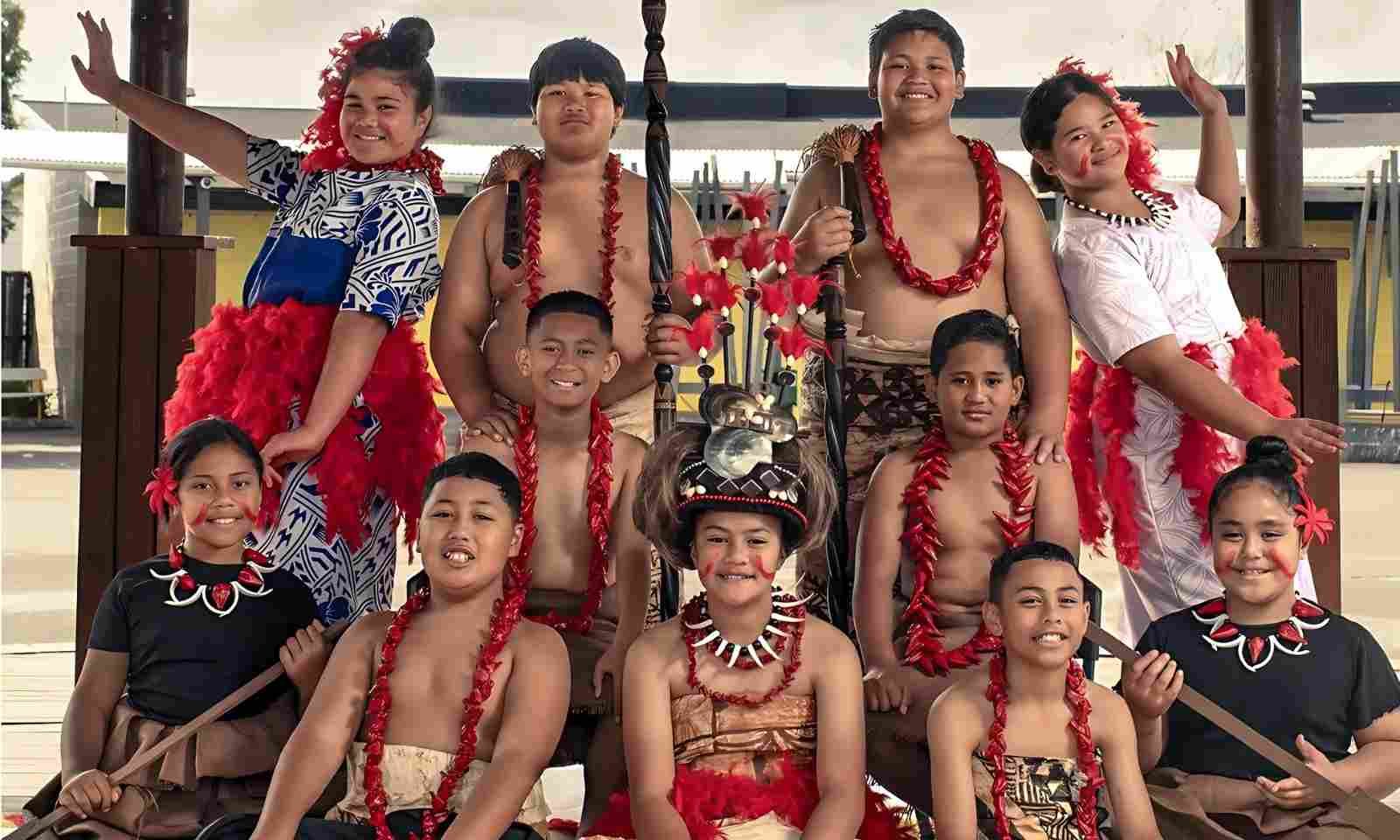

Deputy Pro Vice-Chancellor Pacific Sili-Mireta Ropati was born and raised in Aotearoa, however, Sāmoan is her first language.
Photo/University of Auckland.
Sāmoan trailblazer reflects on language, identity and leadership
Vaiaso o le Gagana Sāmoa is underway and the University of Auckland’s first Sāmoan Acting Deputy Pro Vice-Chancellor Pacific is urging learners to embrace their culture.



Moana Pasifika end Lautoka curse to win 'Battle of the Pacific'


A.R.T sets new Pacific music pace with ‘First Thursday’ releases



Moana Pasifika end Lautoka curse to win 'Battle of the Pacific'


A.R.T sets new Pacific music pace with ‘First Thursday’ releases
As Sāmoan Language Week begins, a Pacific leader encourages learners to persevere, saying, “We're all on a learning journey, and we never quite arrive.”
The 2025 theme for Sāmoan Language Week, which runs until Saturday, is: Ia malu lou sā. Folau i lagimā, a well-grounded self, is a successful self.
According to the Komiti o le Vaiaso o le Gagana Sāmoa, the Sāmoan Language Week Committee, it reflects the strength and resilience gained when individuals are “firmly rooted and well-prepared” to face life’s challenges.
Meanwhile, Sili-Mireta Ropati (Leauva’a, Lalomanu, Lufilufi) makes history becoming the University of Auckland’s (UoA) Acting Deputy Pro Vice-Chancellor Pacific, both the first Sāmoan and first Sāmoan woman to hold the role.
Speaking to William Terite on Pacific Mornings, Ropati says the Sāmoan language has grounded her identity and leadership. She adds that this year's theme reflects her professional and personal journey.
“When all your parts are thoughtfully constructed and carefully crafted, your vessel is able to continue through with the intention of being resilient and grounded, no matter life's challenges and what happens,” Ropati says.
"It's been a journey of reflection on the richness of the culture, the language that has allowed me to remain grounded in my identity. Experiencing tertiary education and in the professional journey.
“It's also been a journey that has allowed me also to recognise the importance of the gagana [Sāmoan language] while growing up in the diaspora and sharing that with my younger siblings and students.”
She acknowledges that many Pacific youth in the diaspora lack fluency in their heritage languages but encourages them to start from wherever they are.
Watch Sili-Mareta Ropati’s full interview below.
“Whether you're at the start of it or whether you're quite involved in the ganana or your reo. It's never too late to start and to be proud of the ability that you have.
“To those who are on their learning journey, mālō lava taumafai [thank you for your efforts], we're all on a learning journey and we never quite arrive.”
In March, ACT Member of Parliament Dr Parmjeet Parmar introduced a bill restricting institutions from offering scholarships, financial assistance, designated spaces, or any other benefits based on ethnicity.
The proposed legislation would allow universities to deliver funds or assistance from external organisations like charities.
It follows a previous back-and-forth between UoA staff and ACT leader David Seymour over a sign outside a study area on campus that says, “This is a designated area for Māori and Pasifika students. Thank you.”

Vaiaso o le Gagana Sāmoa, the Sāmoan Language Week, is celebrated from 1-7 June 2025. Photo/MPP
The Act Party condemned Auckland University's tuākana rooms as “racist, segregated spaces”.
Ropati encourages critics of targeted Pacific spaces to go to the university to gain a better understanding.
“We have spaces for everyone - it is welcoming, ensuring their learning needs are not only supported, but embraced in the approaches of the University, right from workshop level up to policy level,” she says.
“There are over 5000 spaces on campus, so they're targeted and designed for all types of learners and all types of students.”
Now leading the development of Ala o le Moana, UoA’s inaugural Pacific Strategy, Ropati is championing the integration of Pacific worldviews across all levels of the institution.
The strategy will launch later in June and includes identity, language and Pacific success as core pillars.
“What Ala o le Moana sets out to achieve is to amplify the voices and success of not only Pacific learners, but also Pacific staff who go above and beyond for our tauira [students] and Pacific community,” Ropati says.
“We had an intensive stakeholder engagement process where we met with community leaders, church groups, alumni, industry, sector leaders, to understand what it is that would enable Waipapa Taumata Rau or UoA to become a leading Pacific university.
“So touching back on language, identity, and Pacific success, those are some key pillars of Ala o le Moana that we look forward to.”

Ropati says there are over 5000 spaces, some catered for a range of students. Photo/University of Auckland.